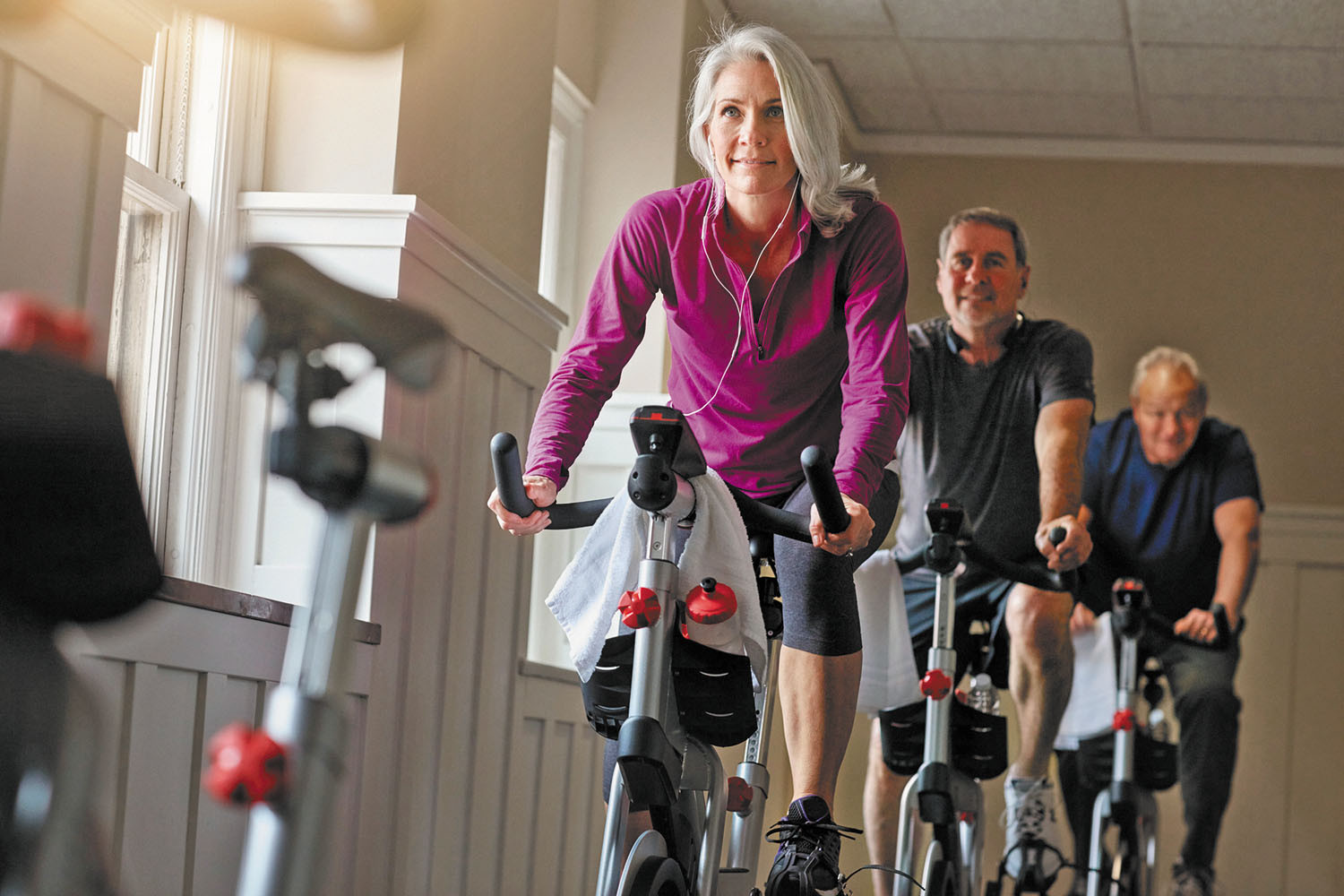
Two jobs may lower the odds of dying from Alzheimer's disease — but why?

Mastitis: What to do when your breasts are painfully inflamed

How — and why — to fit more fiber and fermented food into your meals

UTI in older women: Why postmenopausal women are susceptible to urinary tract infection, and what to do about it

Can a routine vaccine prevent dementia?

Some adults may need a measles booster shot. Who should get one and why?

Less butter, more plant oils, longer life?

Healthier planet, healthier people

Counting steps is good — is combining steps and heart rate better?

Appendix pain: Could it be appendicitis?
Staying Healthy Archive
Articles
Ujjayi breath
This example of a Calming Practice yoga exercise can be done any time of day. If you're anxious or worked up over a stressful situation, the ujjayi breath exercise can center and relax you. It's among dozens of exercises featured in "Intermediate Yoga," a special health report from Harvard Health Publishing. To learn additional intermediate yoga exercises, visit: www.health.harvard.edu/iy
Simple math equals easy weight loss
The pleasure of eating a candy bar lasts but a few minutes. Burning off the calories it delivers can take nearly an hour. So this is definitely not a simple way to lose weight!
To lose one pound by exercising, you need to burn approximately 3,500 calories. It can take days of moderate exercise to do this. A better strategy for weight loss involves a two-pronged approach: exercising and cutting calories.
Grapefruit and medication: A cautionary note
Grapefruit can mean danger when combined with some popular drugs used for high blood pressure, high cholesterol and depression
Grapefruit and grapefruit juice are healthful, providing enough vitamin C, potassium, dietary fiber, and other nutrients to earn the American Heart Association's "heart-check" mark. That's the good news. The bad news is that grapefruit juice can interact with dozens of medications, sometimes dangerously.
Doctors are not sure which of the hundreds of chemicals in grapefruit are responsible. The leading candidate is furanocoumarin. It is also found in Seville (sour) oranges and tangelos; although these fruits have not been studied in detail, the guidelines for grapefruit should apply to them as well.
Staving off dementia when you have mild cognitive impairment
The shift from this condition to dementia is not necessarily inevitable.
Image: © gradyreese/Getty Images
Will I get dementia? That common question takes on urgency if you have mild cognitive impairment (MCI), a slight but noticeable change in memory and thinking skills. But the progression from MCI to dementia is not automatic. In fact, MCI is not always permanent. "It depends on the underlying cause," says Dr. Joel Salinas, a neurologist at Harvard-affiliated Massachusetts General Hospital.
What are the causes of MCI?
MCI is not dementia (see "What is dementia?"), but it's not normal thinking, either. It often stems from disease or treatments for disease, including
Small tricks to help you shed pounds and keep them off
Weight loss can be challenging, but there are some strategies for success.
Image: © Wand_Prapan/Getty Images
If you're struggling to lose weight, you probably feel like the odds are stacked against you. You're not necessarily wrong.
"There is so much great-tasting food, and it's abundant and in your face all the time. To me it's kind of a miracle that people aren't even heavier than they are," says Dr. Meir Stampfer, a professor of epidemiology and nutrition at the Harvard T.H. Chan School of Public Health. In addition to an abundance of food, most people today also have a far more sedentary lifestyle than past generations. "Even active people who exercise a lot aren't expending the calories their ancestors did," says Dr. Stampfer.
How long should I wait after the flu before resuming exercise?
On call
Q. I have just recovered from the flu. How soon can I resume exercise again and can I go straight back to my previous routine?
A. The recommendations about when to return to exercise after respiratory infections, such as the flu, colds, or bronchitis, are vague. One major reason is that each person's response to illness is so variable. But here is my general advice.
Full sun salutation
The basic practice yoga exercises in "Intermediate Yoga"—a special health report from Harvard Medical School—includes sun salutation. Within this three-minute routine, you'll assume multiple positions, including lunge, plank, child's pose, upward-facing dog, downward-facing dog, and forward fold. To learn additional intermediate yoga exercises, visit: www.health.harvard.edu/iy
Alternate nostril breath
Harvard Medical School's "Intermediate Yoga" health report offers one routine known as Balance Practice. Among the exercises described is "alternate-nostril breath." This deep breathing exercise takes just a minute, but it helps balance both mind and body. To learn additional intermediate yoga exercises, visit: www.health.harvard.edu/iy
The right plant-based diet for you
Most plant-based diets emphasize foods associated with heart benefits. However, some plant foods, such as fruit juices, refined grains, processed cereals, and potatoes, can be harmful. The goal is to emphasize heart-healthy plants.

Two jobs may lower the odds of dying from Alzheimer's disease — but why?

Mastitis: What to do when your breasts are painfully inflamed

How — and why — to fit more fiber and fermented food into your meals

UTI in older women: Why postmenopausal women are susceptible to urinary tract infection, and what to do about it

Can a routine vaccine prevent dementia?

Some adults may need a measles booster shot. Who should get one and why?

Less butter, more plant oils, longer life?

Healthier planet, healthier people

Counting steps is good — is combining steps and heart rate better?

Appendix pain: Could it be appendicitis?
Free Healthbeat Signup
Get the latest in health news delivered to your inbox!
Sign Up








